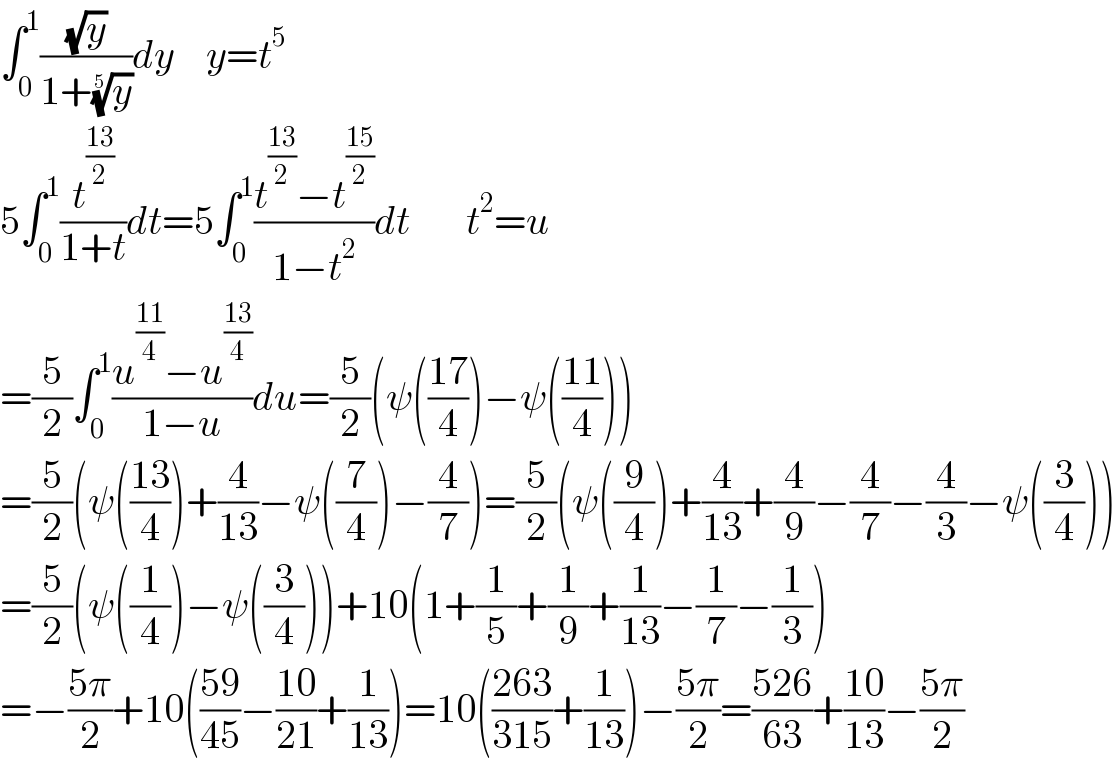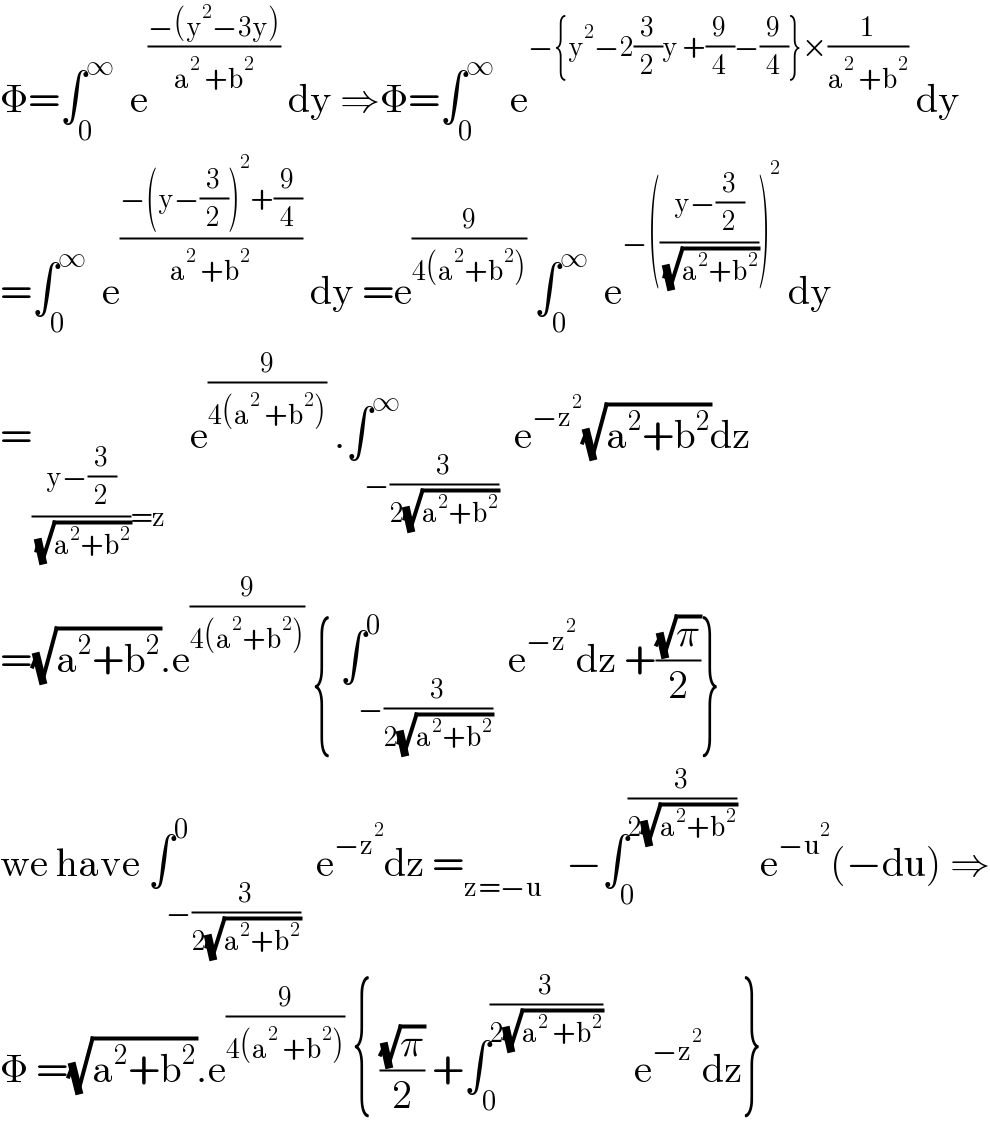
Question and Answers Forum
Question Number 137011 by mohammad17 last updated on 28/Mar/21

Commented by mohammad17 last updated on 28/Mar/21

Commented by mohammad17 last updated on 28/Mar/21

Answered by Dwaipayan Shikari last updated on 28/Mar/21

Commented by mohammad17 last updated on 28/Mar/21

Commented by Dwaipayan Shikari last updated on 28/Mar/21

Answered by mathmax by abdo last updated on 29/Mar/21
![1)I=∫_0 ^1 ((√x)/(1+x^(1/5) ))dx (at form of serie) ⇒I=_((√x)=t) ∫_0 ^1 (t/(1+t^(2/5) ))(2t)dt =2∫_0 ^1 (t^2 /(1+t^(2/5) ))dt changement t^(2/5) =y give t=y^(5/2) ⇒ I=2.(5/2) ∫_0 ^1 (y^5 /(1+y)) y^((5/2)−1) dy =5∫_0 ^1 (y^(((15)/2)−1) /(1+y))dy =5 ∫_0 ^1 y^((13)/2) Σ_(n=0) ^∞ (−1)^n y^n dy =5 Σ_(n=0) ^∞ (−1)^n ∫_0 ^1 y^(n+((13)/2)) dy =5Σ_(n=0) ^∞ (−1)^n (1/(n+((13)/2)+1))[y^(n+((13)/2)+1) ]_0 ^1 =5Σ_(n=0) ^∞ (((−1)^n )/(n+((15)/2))) =10 Σ_(n=0) ^∞ (((−1)^n )/(2n+15)) rest to find the value of this serie ...be continued...](Q137024.png)
Answered by mathmax by abdo last updated on 29/Mar/21

Answered by mathmax by abdo last updated on 29/Mar/21
![3) I=∫_(−1) ^1 (e^(2y) /( (√7)+e^y ))dy we do the chanhement e^y =x ⇒ I =∫_(1/e) ^e (x^2 /( (√7)+x))(dx/x) =∫_(1/e) ^e (x/(x+(√7)))dx =∫_(1/e) ^e ((x+(√7)−(√7))/(x+(√7)))dx =[x]_(1/e) ^e −(√7)[ln(x+(√7))]_(1/e) ^e =e−e^(−1) −(√7){ln(e+(√7))−ln(e^(−1) +(√7))}](Q137028.png)
